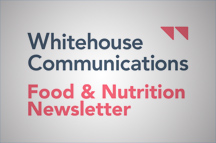As we experienced a bit more sun and (some) softened COVID restrictions across Europe, June marked a month where policymakers held important debates and announced policy initiatives relevant to the sector. Let’s look back at what the past month brought us.
It was a busy time for the UK. While G7 summit leaders met in Cornwall to discuss food waste, climate change and food safety, the country also secured a trade deal with Australia, and made steps in tackling obesity and overweight by confirming restrictions in advertising of foods high in fat, salt and sugar.
There were also calls to take advantage of Brexit. A UK Task Force published recommendations on the creation of a new regulatory framework for the fast-growing category of novel health enhancing foods and supplements, and the edible insect industry called for disentanglement of the sector from onerous rules and to put the UK at the forefront of the insect protein movement.
In the EU, we saw Members of the European Parliament (MEPs) went back on their plans to restrict marketing terms for plant-based dairy products.
With Slovenia’s take-over of Council presidency around the corner, we expect July to be a month where Europe picks up post-lockdown life with many fruitful (online) discussions, before a well-deserved summer holiday.
Please click here if you would like to subscribe to receive the Whitehouse Communications Food & Nutrition newsletter.
|

















